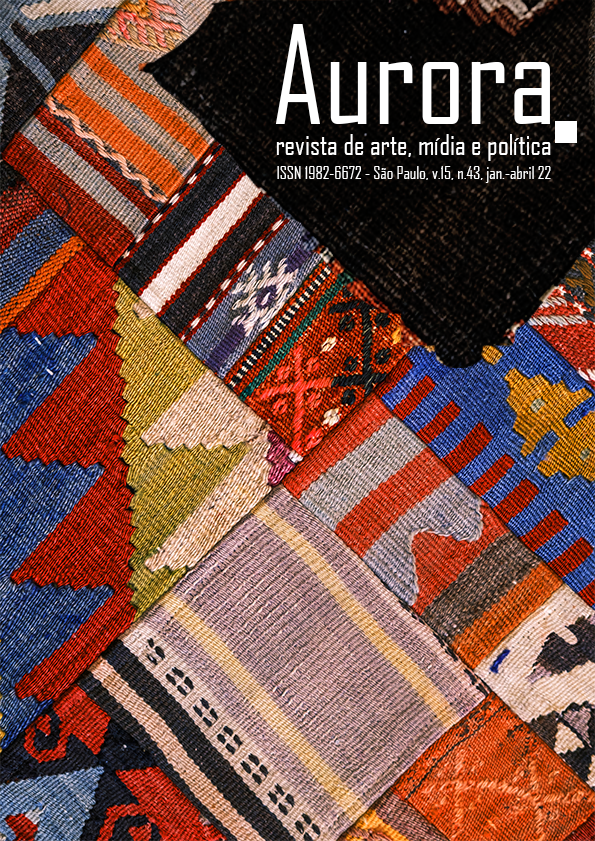Education and technological education in Brazil
truncated trajectories
DOI:
https://doi.org/10.23925/1982-6672.2022v15i43p141-166Keywords:
Brazilian Education, Science, TechnologyAbstract
Technique and technology have provided us with a diversity of products and machines. It is precisely the machinery that gives greater visibility to the process of transforming science into a given object, whether the latter is material or not. In this systemic process there are two protagonists: technique and technology. In other words, it is the classic relationship between the creative subject and his created object: convergence, in a truncated evolutionary process between Homo Faber and Homo Sapiens. As a result of this process of comings and goings, we have another resulting from this relationship expressed in the rupture of the subject with his object: with the machinery, the subject becomes increasingly dependent on the equipment and not on his own rationality. In Homo, which is both Faber and Sapiens, technique and technology make up an inseparable whole from the action and historical formation of man. The production of man is, at the same time, a process of man's formation. There is here an implicit relationship of identity between producing and forming. Now, why do we produce anything? Would this not be a kind of response to the contingencies and demands that the day-to-day or the effective and concrete reality - which surrounds us and within which we are inserted - places us regularly? We have seen that, given this scenario, there is a purpose (telos) in our actions. Our actions have transformed us and, at the same time, have transformed the world around us with reflections on man's relationships with himself, with others and with his surroundings. From these transformations, we seek to establish the role of Education, especially in Technological Education, in the unfolding of this complex multifaceted process. Finally, with a qualitative approach to the historical-social process, we propose to describe and explain the main historical factors, their recurrences, which imply a truncated technical and technological development, in addition to their profound impacts on Brazilian education.
References
ANTUNES, Ricardo. Os sentidos do trabalho. Ensaio sobre a afirmação e a negação do trabalho. São Paulo: Boitempo Editorial, 2003.
FRIGOTTO, Gaudêncio. A polissemia da categoria trabalho e a batalha das ideias nas sociedades de classe. Rio de Janeiro: Revista Brasileira de Educação, v. 14, n. 40, jan./abr. 2009.
FRIGOTTO, Gaudêncio, CIAVATTA, Maria e RAMOS, Marise. Ensino médio integrado: concepção e contradições. São Paulo: Cortez, 2012.
KOSIK, Karel. Dialética do Concreto. Rio de Janeiro: Paz e Terra, 1976.
MOLL, Jaqueline et al. Educação profissional e tecnológica no Brasil contemporâneo: desafios, tensões e possibilidades. Porto Alegre: Artmed, 2010.
MOURA, Dante Henrique (org.). Produção de conhecimento, políticas públicas e formação docente em educação profissional. Campinas: Mercado de Letras, 2013.
NEVES, Lúcia Maria Wanderley & PRONKO, Marcela Alejandra. O mercado do conhecimento e o conhecimento para o mercado. Rio de Janeiro: EPSJV, 2008.
OLIVEIRA, Francisco de. Crítica à razão dualista & O ornitorrinco. São Paulo: Boitempo, 2013.
OLIVEIRA, Francisco de & RIZEK, Cibele Saliba (orgs.). A era da indeterminação. São Paulo: Boitempo, 2007.
RODRIGUES, José. O moderno príncipe industrial: o pensamento pedagógico da Confederação Nacional da Indústria. Campinas/SP: Autores Associados, 1998.
SAVIANI, Dermeval. Sobre a concepção de politecnia. Rio de Janeiro: Fiocruz, 1989.
SAVIANI, Dermeval. Trabalho e educação: fundamentos ontológicos e históricos. Rio de Janeiro: Revista Brasileira de Educação, v. 12, n. 34, jan./abr. 2007.
SMITH, Adam. A Riqueza das Nações. São Paulo: WMF Martins Fontes, 2 vol., 2016.
Downloads
Published
How to Cite
Issue
Section
License
Copyright (c) 2022 Aurora. Revista de Arte, Mídia e Política

This work is licensed under a Creative Commons Attribution-NonCommercial-ShareAlike 4.0 International License.










